What Is SearchUp Mac?
 SearchUp for Mac is not your average search web page that would appear on your browser. Seeing it on your Mac means that you have an unwanted program that this called a browser hijacker by malware researchers. These types of software often end up on your macOS without your explicit knowledge or consent and they begin to heavily modify the options and preferences of the web browsers Google Chrome, Firefox, Opera and Safari in case they are installed on your Mac. SearchUp may start to appear as your default search engine and may also pop up each time when you open your web browser. It may also lead you to websites that are probably not the places that you would originally want to go to when you search for something online. Not only this but your Mac performance will worsen significantly because you might start seeing different types of advertisements that may flood and make it stutter and even freeze at times.
SearchUp for Mac is not your average search web page that would appear on your browser. Seeing it on your Mac means that you have an unwanted program that this called a browser hijacker by malware researchers. These types of software often end up on your macOS without your explicit knowledge or consent and they begin to heavily modify the options and preferences of the web browsers Google Chrome, Firefox, Opera and Safari in case they are installed on your Mac. SearchUp may start to appear as your default search engine and may also pop up each time when you open your web browser. It may also lead you to websites that are probably not the places that you would originally want to go to when you search for something online. Not only this but your Mac performance will worsen significantly because you might start seeing different types of advertisements that may flood and make it stutter and even freeze at times.
If you have the SearchUp browser hijacking software on your Mac then we highly suggest that you take a look at this removal article and read the guide in the end so that you can learn how to get rid of this app.

SearchUp Mac Summary
| Name | SearchUp |
| Type | Browser Hijacker/Adware/PUP on Mac |
| Short Description | Aims to modify the settings on your web browser in order to get it to cause browser redirects and display different advertisements. |
| Symptoms | Your web browser begins to display various types of online advertisements, which results in slowing down of your machine. |
| Distribution Method | Bundled downloads. Web pages which may advertise it. |
| Detection Tool |
See If Your System Has Been Affected by malware
Download
Malware Removal Tool
|
User Experience | Join Our Forum to Discuss SearchUp. |
SearchUp for Mac – What Does It Do?
What appears to be the main purpose of SearchUp on your Mac is profit. This is because the people who have created this nasty ad-supported application make it so that you see a lot of different ads that generate money per visited user on them. This way they boost hoax traffic to websites of all types. The main ads that you may see if your computer has SearchUp running in it are of the following kinds:
- Banner ads.
- Browser transfers.
- Pop-up pages.
- Push notification ads.
- Highlighted texts that are ads.
- Video and media ads with sound.
- Ads instead of objective search results.
These ads may not only slow down your computer but they could also use different types of trackers to obtain more information about where you click and browse so that they can increase the chances that you click on a given ad. This technique is known as a behavioural advertising it is being used by companies legitimately. These types of adware applications, like SearchUp abuse this by obtaining information about what you do online, where you click, what you type on your browser and so on. The trackers that maybe used could be of the following types:
- Different types of cookies.
- Geo-locator technologies.
- Pixel objects.
- Tags.
- Flash Cookies (LSOs)
But be aware that having SearchUp or the ads that it may show track you is the least of your worries. Since the developers of these adware apps do not usually mind what type of content they slither on your Mac you may eventually be led to very dangerous websites such as:
- Survey frauds.
- Phishing sites.
- Tech support frauds.
- Malciouus URLs.
- Sites that may leak and obtain data.
- Fake login pages.
These are the primary reasons to consider getting rid of this application as fast as you possibly can and then change your passwords and other personal information or financial data that you may have saved on your Mac.

Remove SearchUp from Your Mac
The removal instructions that are posted below are designed to help you to get rid of this nasty piece of software from your web browsers and your Mac. Following them will help you isolate the Threat and remove it manually. If you want a fast and effective removal then we suggest that you use what is according to experts the best method of removing programs like SearchUp and securing your Mac. This solution is downloading and running a scan of your Mac by using a special Mac anti-malware software which will detect any threats that may currently reside in your device and protect it against future apps as well.
Steps to Prepare Before Removal:
Before starting to follow the steps below, be advised that you should first do the following preparations:
- Backup your files in case the worst happens.
- Make sure to have a device with these instructions on standy.
- Arm yourself with patience.
- 1. Scan for Mac Malware
- 2. Uninstall Risky Apps
- 3. Clean Your Browsers
Step 1: Scan for and remove SearchUp files from your Mac
When you are facing problems on your Mac as a result of unwanted scripts and programs such as SearchUp, the recommended way of eliminating the threat is by using an anti-malware program. SpyHunter for Mac offers advanced security features along with other modules that will improve your Mac’s security and protect it in the future.
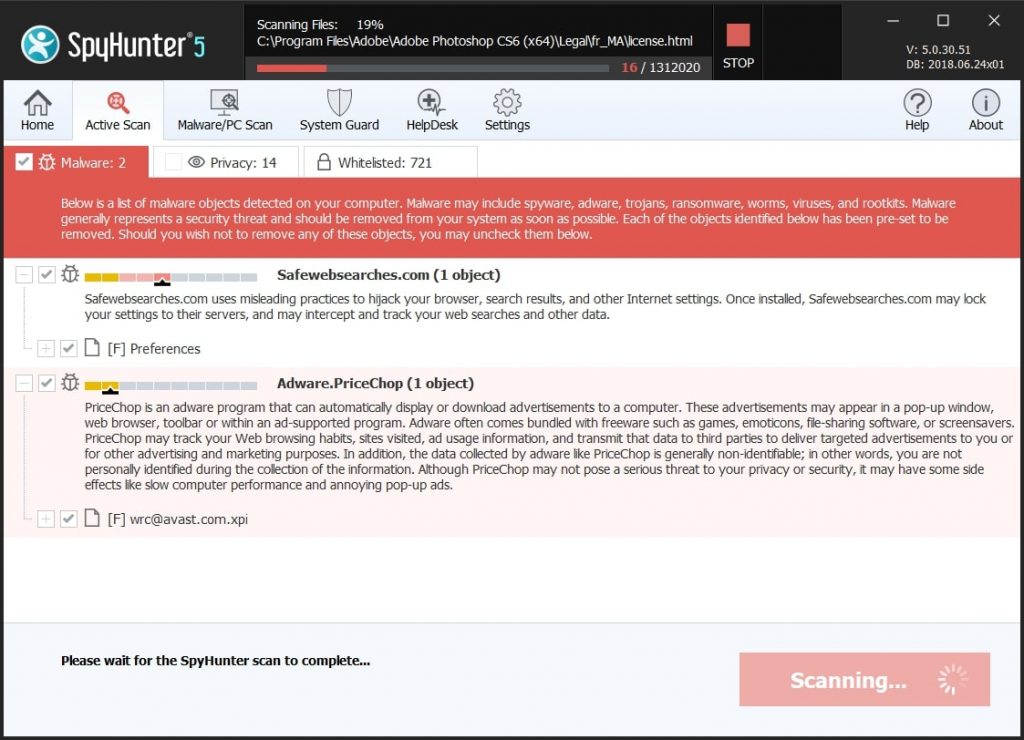
Quick and Easy Mac Malware Video Removal Guide
Bonus Step: How to Make Your Mac Run Faster?
Mac machines maintain probably the fastest operating system out there. Still, Macs do become slow and sluggish sometimes. The video guide below examines all of the possible problems that may lead to your Mac being slower than usual as well as all of the steps that can help you to speed up your Mac.
Step 2: Uninstall SearchUp and remove related files and objects
1. Hit the ⇧+⌘+U keys to open Utilities. Another way is to click on “Go” and then click “Utilities”, like the image below shows:
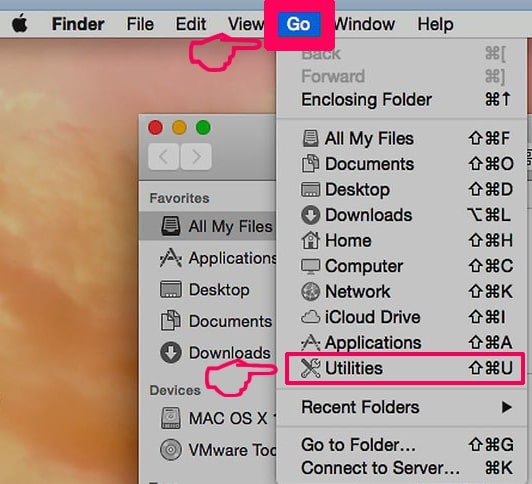
2. Find Activity Monitor and double-click it:
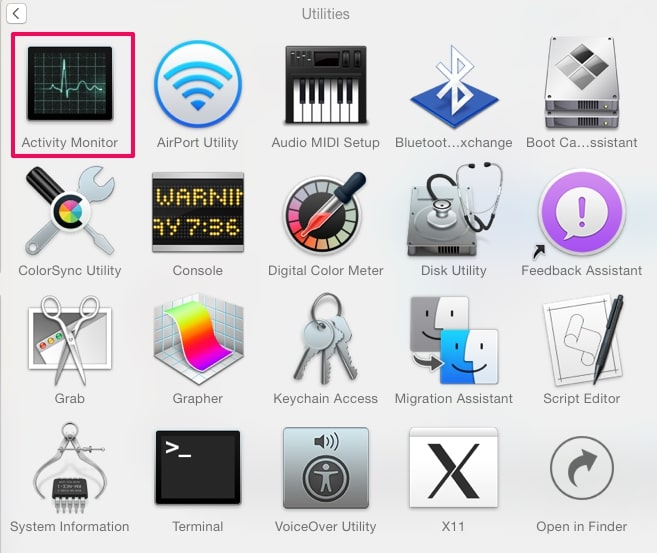
3. In the Activity Monitor look for any suspicious processes, belonging or related to SearchUp:
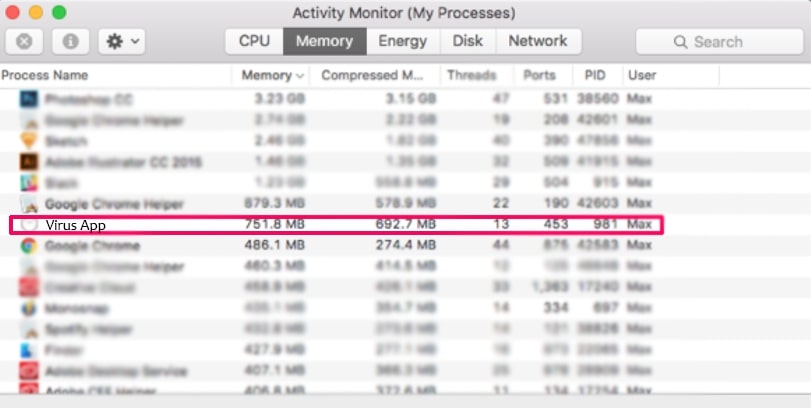
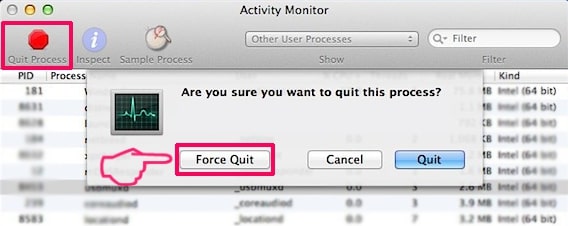
4. Click on the "Go" button again, but this time select Applications. Another way is with the ⇧+⌘+A buttons.
5. In the Applications menu, look for any suspicious app or an app with a name, similar or identical to SearchUp. If you find it, right-click on the app and select “Move to Trash”.
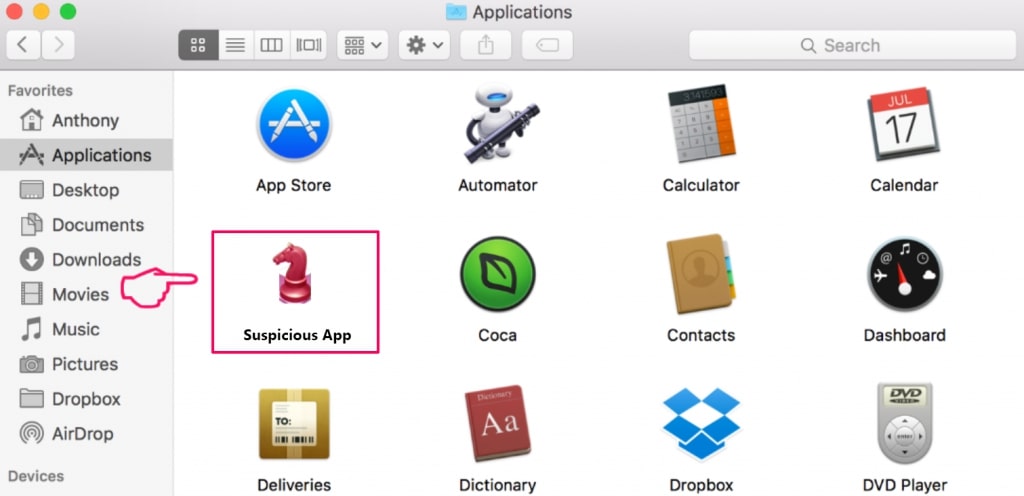
6. Select Accounts, after which click on the Login Items preference. Your Mac will then show you a list of items that start automatically when you log in. Look for any suspicious apps identical or similar to SearchUp. Check the app you want to stop from running automatically and then select on the Minus (“-“) icon to hide it.
7. Remove any leftover files that might be related to this threat manually by following the sub-steps below:
- Go to Finder.
- In the search bar type the name of the app that you want to remove.
- Above the search bar change the two drop down menus to “System Files” and “Are Included” so that you can see all of the files associated with the application you want to remove. Bear in mind that some of the files may not be related to the app so be very careful which files you delete.
- If all of the files are related, hold the ⌘+A buttons to select them and then drive them to “Trash”.
In case you cannot remove SearchUp via Step 1 above:
In case you cannot find the virus files and objects in your Applications or other places we have shown above, you can manually look for them in the Libraries of your Mac. But before doing this, please read the disclaimer below:
1. Click on "Go" and Then "Go to Folder" as shown underneath:
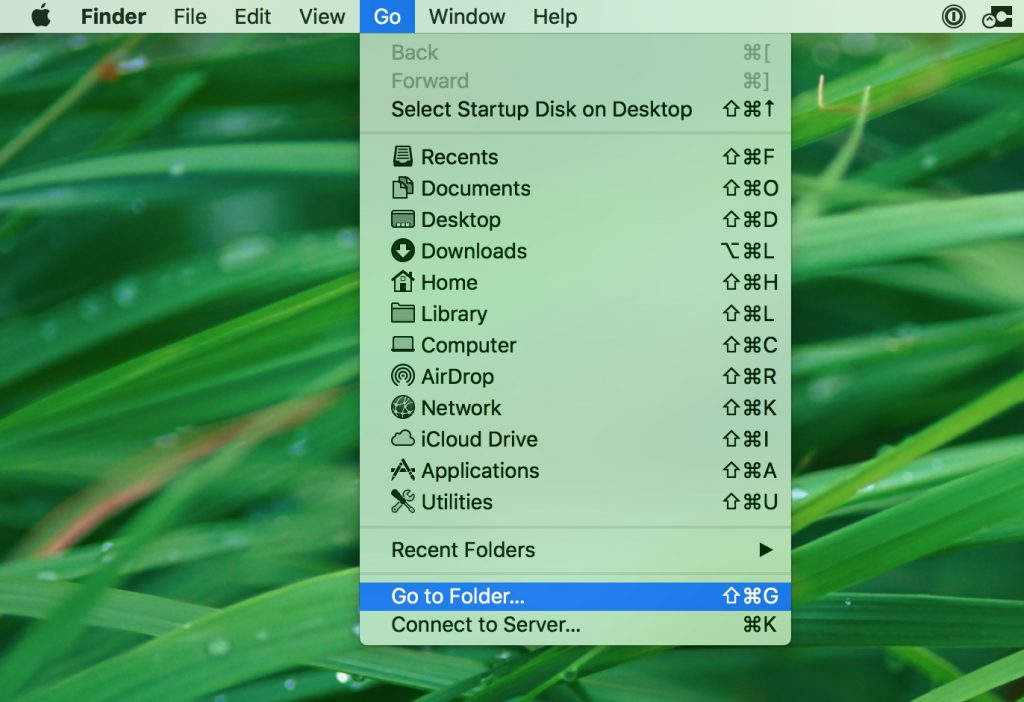
2. Type in "/Library/LauchAgents/" and click Ok:
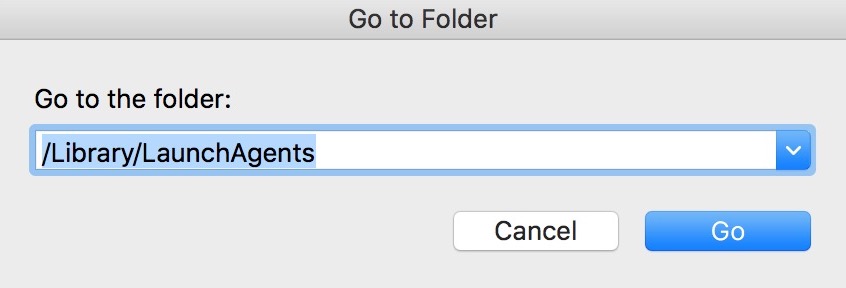
3. Delete all of the virus files that have similar or the same name as SearchUp. If you believe there is no such file, do not delete anything.
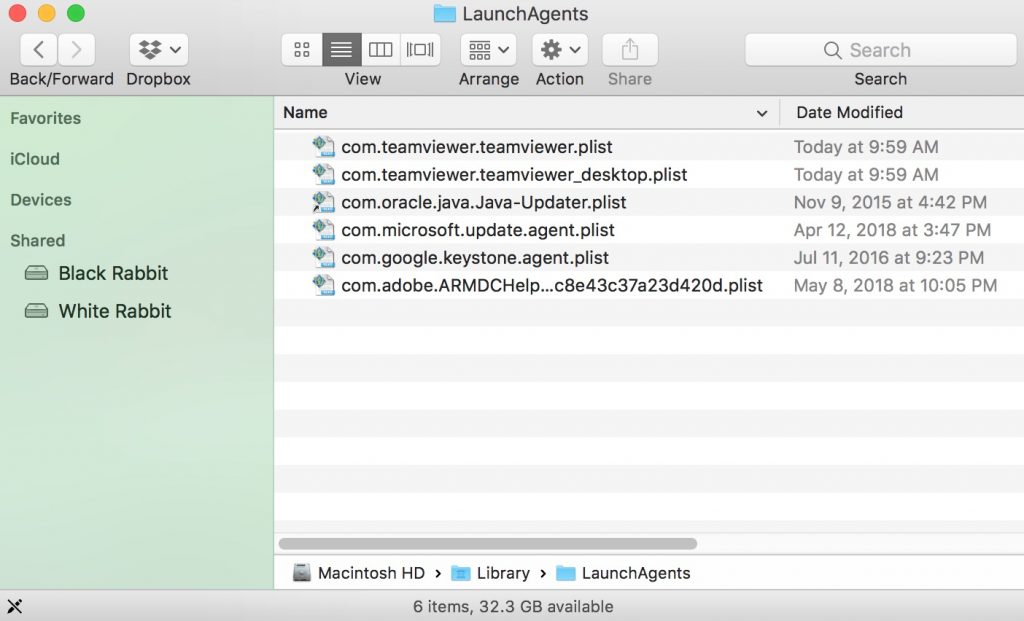
You can repeat the same procedure with the following other Library directories:
→ ~/Library/LaunchAgents
/Library/LaunchDaemons
Tip: ~ is there on purpose, because it leads to more LaunchAgents.
Step 3: Remove SearchUp – related extensions from Safari / Chrome / Firefox
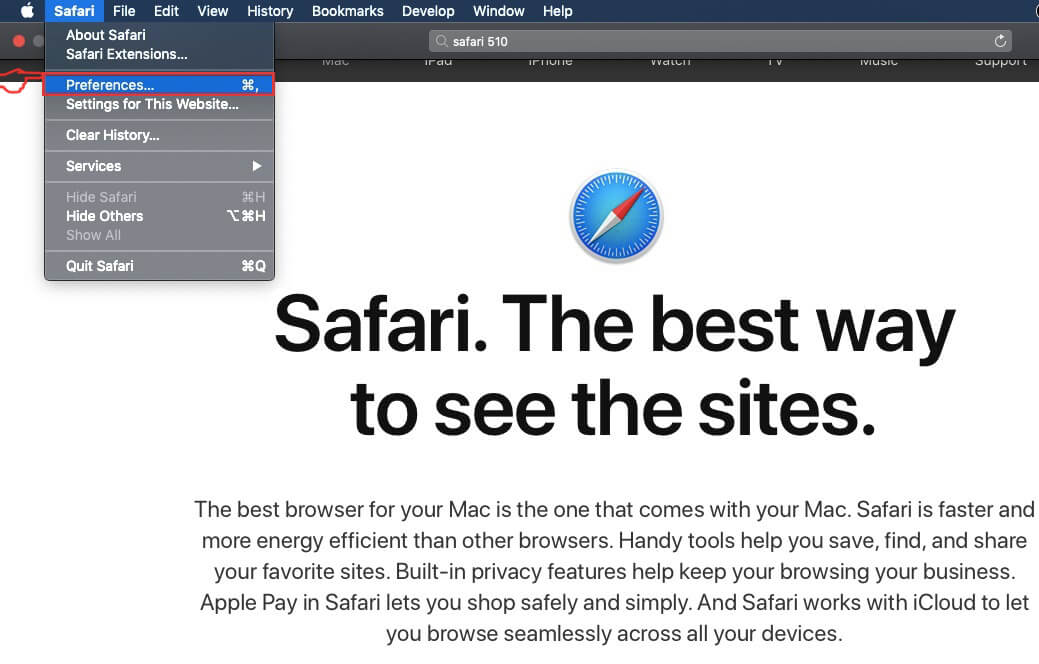

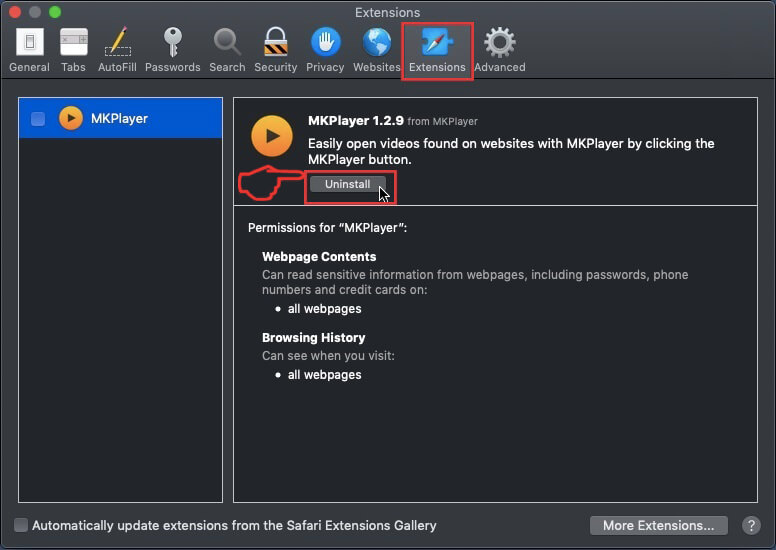

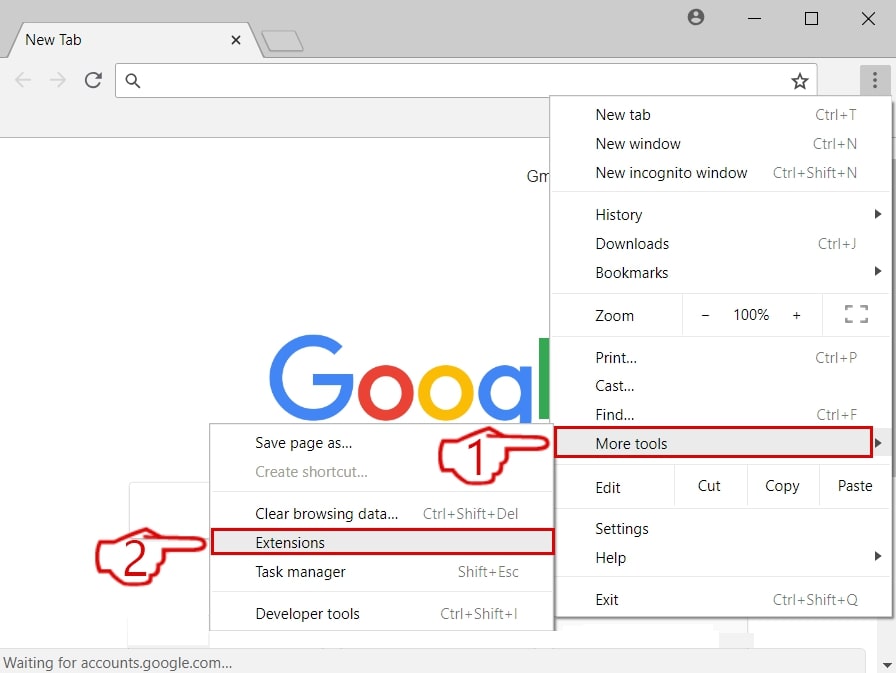
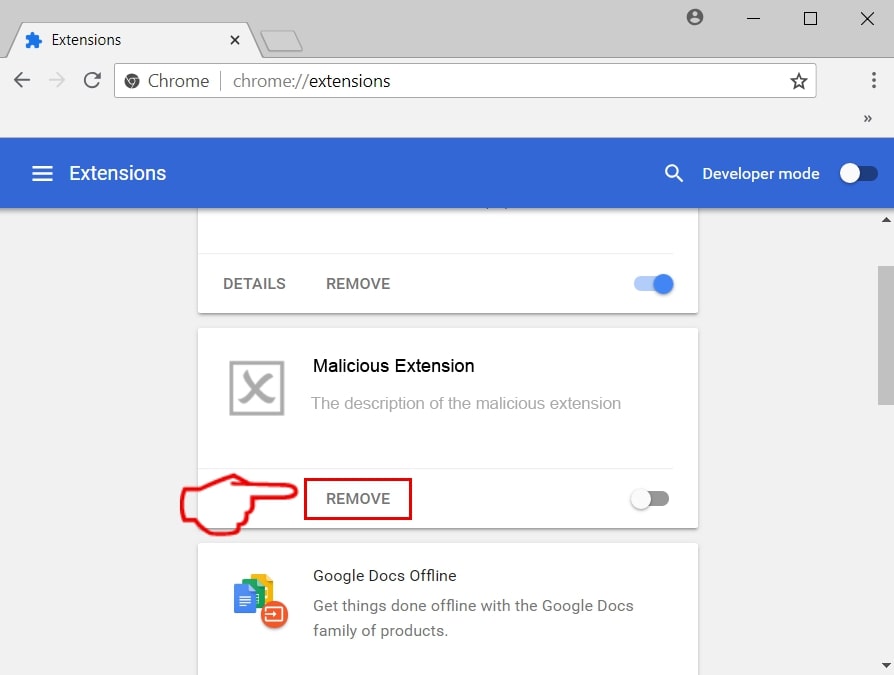
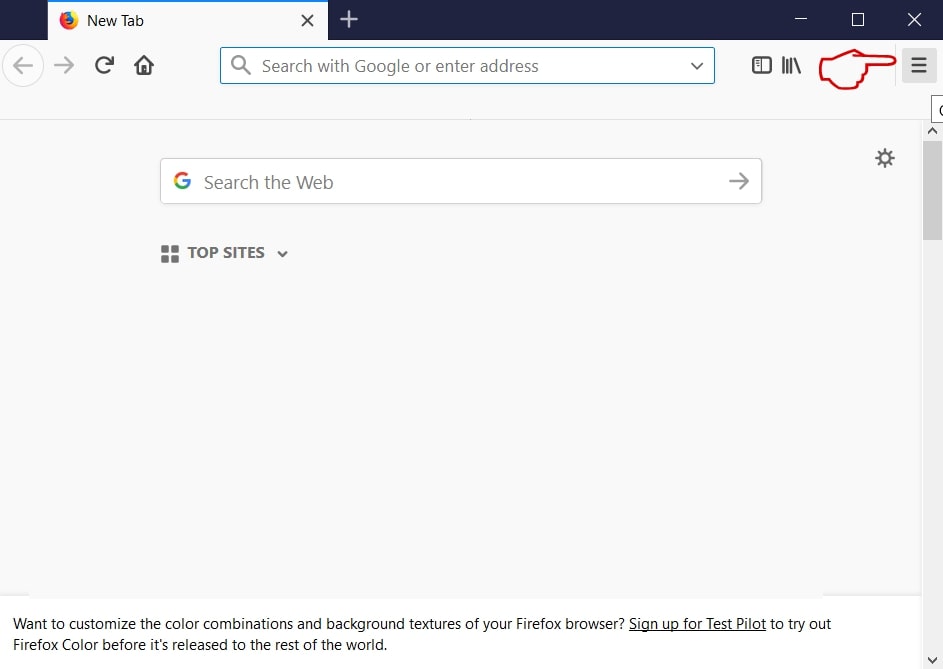
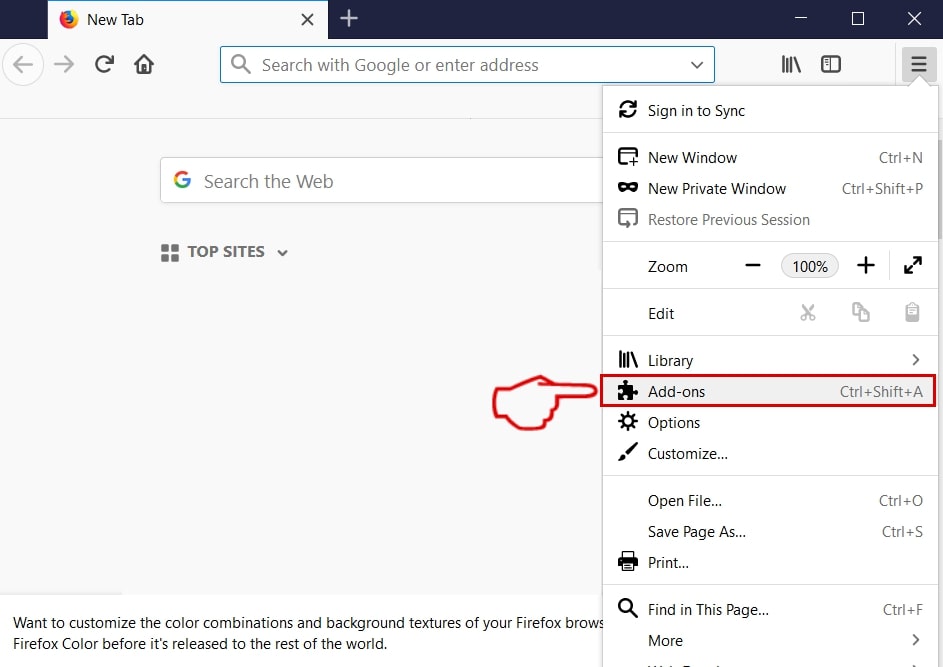
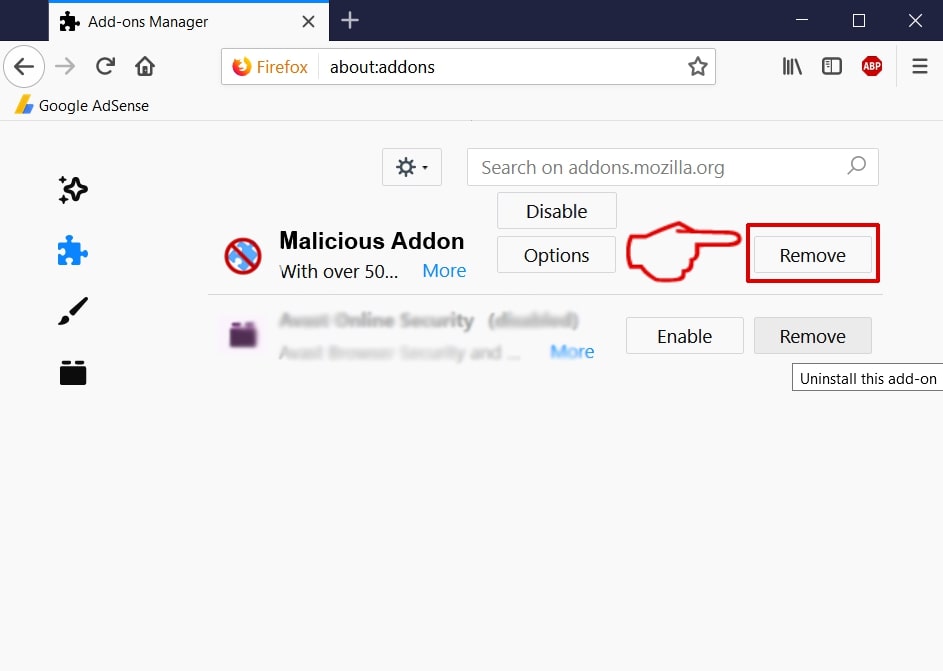
SearchUp-FAQ
What is SearchUp on your Mac?
The SearchUp threat is probably a potentially unwanted app. There is also a chance it could be related to Mac malware. If so, such apps tend to slow your Mac down significantly and display advertisements. They could also use cookies and other trackers to obtain browsing information from the installed web browsers on your Mac.
Can Macs Get Viruses?
Yes. As much as any other device, Apple computers do get malware. Apple devices may not be a frequent target by malware authors, but rest assured that almost all of the Apple devices can become infected with a threat.
What Types of Mac Threats Are There?
According to most malware researchers and cyber-security experts, the types of threats that can currently infect your Mac can be rogue antivirus programs, adware or hijackers (PUPs), Trojan horses, ransomware and crypto-miner malware.
What To Do If I Have a Mac Virus, Like SearchUp?
Do not panic! You can easily get rid of most Mac threats by firstly isolating them and then removing them. One recommended way to do that is by using a reputable malware removal software that can take care of the removal automatically for you.
There are many Mac anti-malware apps out there that you can choose from. SpyHunter for Mac is one of the reccomended Mac anti-malware apps, that can scan for free and detect any viruses. This saves time for manual removal that you would otherwise have to do.
How to Secure My Data from SearchUp?
With few simple actions. First and foremost, it is imperative that you follow these steps:
Step 1: Find a safe computer and connect it to another network, not the one that your Mac was infected in.
Step 2: Change all of your passwords, starting from your e-mail passwords.
Step 3: Enable two-factor authentication for protection of your important accounts.
Step 4: Call your bank to change your credit card details (secret code, etc.) if you have saved your credit card for online shopping or have done online activiites with your card.
Step 5: Make sure to call your ISP (Internet provider or carrier) and ask them to change your IP address.
Step 6: Change your Wi-Fi password.
Step 7: (Optional): Make sure to scan all of the devices connected to your network for viruses and repeat these steps for them if they are affected.
Step 8: Install anti-malware software with real-time protection on every device you have.
Step 9: Try not to download software from sites you know nothing about and stay away from low-reputation websites in general.
If you follow these reccomendations, your network and Apple devices will become significantly more safe against any threats or information invasive software and be virus free and protected in the future too.
More tips you can find on our MacOS Virus section, where you can also ask any questions and comment about your Mac problems.
About the SearchUp Research
The content we publish on SensorsTechForum.com, this SearchUp how-to removal guide included, is the outcome of extensive research, hard work and our team’s devotion to help you remove the specific macOS issue.
How did we conduct the research on SearchUp?
Please note that our research is based on an independent investigation. We are in contact with independent security researchers, thanks to which we receive daily updates on the latest malware definitions, including the various types of Mac threats, especially adware and potentially unwanted apps (PUAs).
Furthermore, the research behind the SearchUp threat is backed with VirusTotal.
To better understand the threat posed by Mac malware, please refer to the following articles which provide knowledgeable details.


